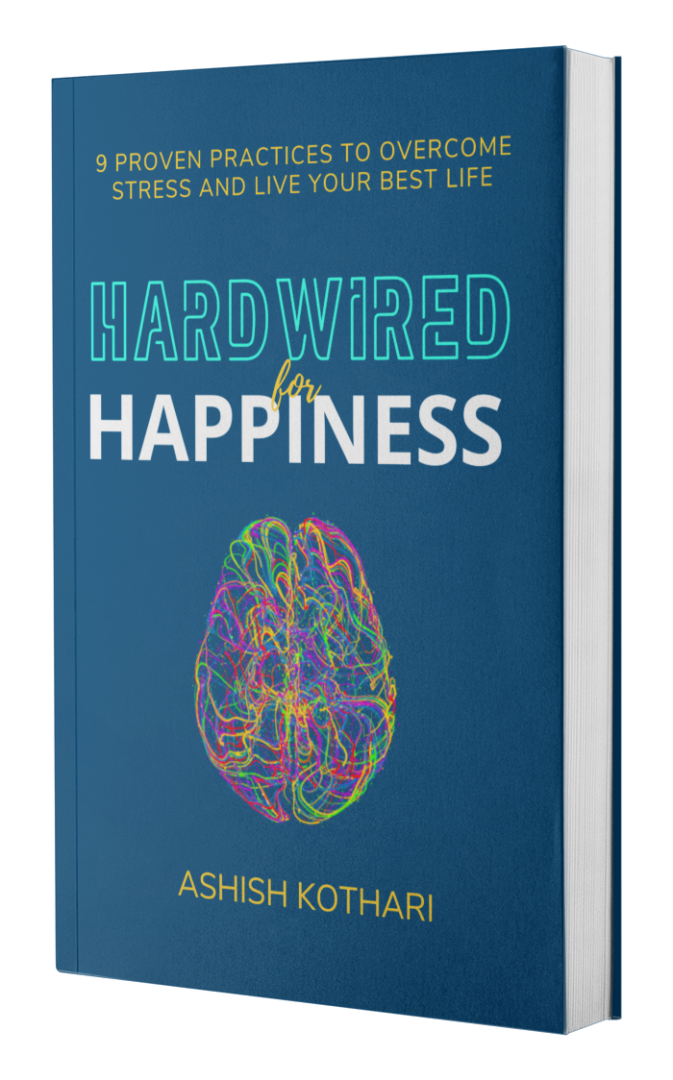Why Your Small/Medium Business Is Actually Your Secret Weapon (And How to Use It)

What if small and medium businesses stopped trying to play the big guys’ game, and started winning on their own terms?
That’s the question I posed to my friend and former McKinsey colleague, Sri Kaza, when he joined me on the Happiness Squad podcast. Sri is an entrepreneur, investor, and the author of Unconvention: A Small Business Strategy Guide. He’s spent decades helping companies grow, from Viking Cruises to mission-driven financial services, and now, through his book, he’s on a mission to help small businesses thrive.
In our conversation, we unpacked what he calls the “underdog principles”: positioning, proximity, and purpose. These aren’t just ideas. They’re a playbook for small and medium businesses (SMBs) to outmaneuver giants, stay close to their customers, and flourish without losing their soul.
And as someone who has dedicated my work at Happiness Squad to helping individuals and organizations flourish, I couldn’t help but see deep connections between his principles and what I’ve learned about human thriving.
Let me share the highlights and, more importantly, the actionable insights you can use in your own business.
-
Stop Playing the Big Guys’ Game
Too often, SMBs think the path to success is imitating large companies: more scale, more efficiency, more marketing spend. But as I said:
“You can’t defeat a sumo by pretending to be one.”

When small companies try to copy the giants, they spread themselves too thin and end up invisible in the noise. The truth? Your size is not a weakness, it’s your advantage.
I often say: don’t measure yourself against Goliath’s strengths; harness your David-like agility, creativity, and heart.
Actionable Insight: Instead of asking, “How can we look bigger?” ask, “How can we be more human, more authentic, more irreplaceable?” The future belongs to businesses that bring soul and proximity back into commerce.
-
Positioning: Be Irreplaceable to the Right Few
Sri’s first principle is positioning, the art of being distinct. In a world where big businesses chase every customer, small businesses must choose who they serve and double down.
“Positioning isn’t about being everything to everyone, it’s about being irreplaceable to the right few.” —Sri Kaza
He reminded me of how customers rallied behind their favorite restaurants during COVID. Even if they’d never ordered takeout before, they ordered two or three times a week, because they couldn’t imagine their neighborhood without that restaurant.
That’s the power of positioning. When you matter deeply to the people who matter most, they’ll stand by you in tough times.
Actionable Tips for Positioning:
- Define your core customer and say no to serving everyone.
- Ask: “If we disappeared tomorrow, who would miss us most?” Build for them.
- Make your uniqueness visible—whether through your story, location, product, or values.
-
Proximity: Your Superpower
The second underdog principle is proximity, staying close to the people who make your business possible. For SMBs, this means both customers and employees.
“Small businesses have what big companies don’t: proximity to their customers and employees. That closeness is their secret weapon.” -Sri Kaza
Large corporations rely on data, surveys, and dashboards to guess what customers want. But you? You probably hear it directly from their lips. You see their expressions when they interact with your product. You know their frustrations before the spreadsheets capture them.
And the same applies to employees. In a small business, you know their families, their aspirations, their struggles. That closeness allows you to do what big firms cannot: craft jobs to fit people, rather than forcing people into boxes.
As I said in our conversation:
“In small businesses, employees aren’t cogs in a wheel, they’re Davids who can take down Goliaths.”
Actionable Tips for Proximity:
- Schedule regular customer check-ins, not customer surveys, but real conversations.
- Empower frontline employees to act on what they hear from customers.
- Get to know your team members as people. Ask about their dreams, not just their deliverables.
-
Purpose: The Why That Outlasts the How
The third principle, and the one closest to my heart, is purpose.
Running a small business is not for the faint hearted. Every entrepreneur I know has faced existential challenges: cash flow crunches, personal sacrifices, market downturns. What keeps them alive is not spreadsheets, but purpose.
“Purpose is what keeps businesses alive when every spreadsheet says you should shut down.” -Sri Kaza
Purpose provides the fuel to endure long hours and setbacks. It creates loyalty with customers and deep engagement with employees. It is the reason investors or partners choose to stay with you when logic says they shouldn’t.
As Nietzsche famously said:
“Those who have a why can survive anyhow.”
Your why might be independence, creating opportunities for your community, solving a personal pain point, or building a legacy. Whatever it is, revisit it often. Too many founders lose sight of their original purpose and get lost in the daily grind.
Actionable Tips for Purpose:
- Revisit your founding “why.” Why did you start this business?
- Share your purpose openly with employees, customers, and investors.
- Let your purpose guide tough decisions, especially during crises.
-
AI: A Growth Play, Not a Cost Play
We couldn’t have this conversation without talking about AI. Big companies are using AI primarily to cut costs, automating jobs, streamlining operations. But for small businesses, AI is a different kind of opportunity.
“AI for big companies is a cost play. AI for small businesses is a growth play.” -Ashish Kothari
Sri put it beautifully:
“AI gives small businesses 10 times more capacity, while big businesses just get more cost cutting.”

With AI, small businesses can take on tasks they previously didn’t have the time or resources for, whether it’s marketing campaigns, customer insights, or streamlining back-office work. Instead of competing on scale, you can use AI to amplify creativity and free up time to focus on what matters most: your customers and your purpose.
Actionable Tips for AI in SMBs:
- Start small: automate one bottleneck task that eats your time.
- Use AI for growth activities (customer service, marketing, innovation), not just efficiency.
- Train your team to use AI tools, it’s the best upskilling investment you can make.
Final Reflection
Sri Kaza’s Unconvention reframes what many see as small business limitations as their greatest competitive edge. By embracing the underdog principles, business owners can create not just more profitable enterprises, but more fulfilling and sustainable ones where both owners and employees thrive.
The three underdog principles are simple, yet powerful:
- Positioning: Be irreplaceable to the right few.
- Proximity: Stay close to your customers and employees.
- Purpose: Anchor your business in a why that outlasts any how.
The businesses that thrive in the future won’t be those that try to out-muscle the giants. They’ll be the ones that play their own game—grounded in humanity, guided by purpose, and flourishing on their own terms.
Learn more about Sri on Linkedin.
Listen to the podcast with Ashish and Sri below. You can also listen on Apple Podcasts.
Access and subscribe to all of the episodes of the Flourishing Edge Podcast here.
Make Flourishing Your Competitive Edge.


